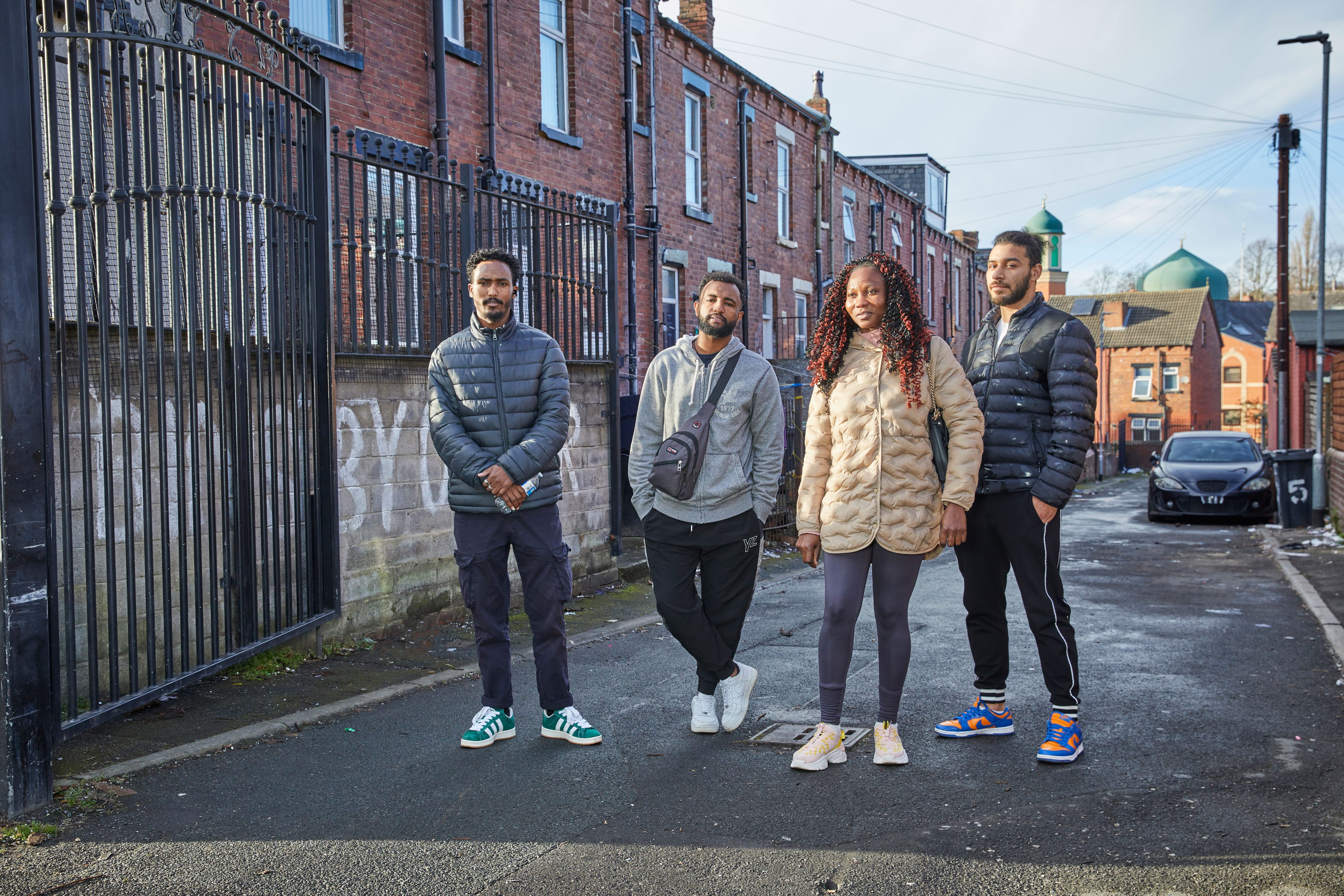
Our health is impacted by many things around us – our homes, our jobs, our income, our education, our environment – the building blocks of health. Experiencing discrimination can wear away at every block. We know that when these things aren’t working well, the trend is that people die younger and are ill for longer. We also know that people who experience social and economic disadvantage are more likely to experience poor housing, low income, discrimination and insecure jobs.
Our Health Justice Fund provides a route through which communities experiencing the sharp end of health inequalities can work with us, using their experience and practice, to improve health for the long term.
The fund prioritises thematic areas based on what people most affected by these issues have told us is needed and what the evidence points towards.
The learning and evidence we gain (from independent evaluation and on-the-ground practice) will be used to influence decision makers and support action that leads to real health justice for communities across Great Britain.
Features of the fund include: working in partnership, connecting projects through networks, evaluating and learning as we go, funding, using evidence to make the case for change, communicating what we’re doing, being flexible in our approach, and evolving our approach based on what we learn from communities most affected by health inequalities.
Our current priorities
We are currently working on six priority areas. These and future priorities will evolve and change over time based on what communities tell us they need.
Advice for Health
Advice for Health is funding organisations supporting local people who are experiencing financial and social disadvantage, marginalisation and discrimination and are not able to access advice services because they feel overwhelmed. By supporting people to feel less overwhelmed and to access advice, the funding aims to see improvements in people’s mental and/or physical health. Advice for Health was open to applications in May/June 2024 and five projects were awarded funding in September/October 2024. Find out more
Discrimination and health
Discrimination and health is helping local people experiencing discrimination – including racism, homophobia and transphobia, ablism, misogyny, and agism – to take action and secure positive change that benefits their health. Working in six towns and cities in England, local people are sharing their experiences of discrimination and developing an action plan for tackling it. Through this work, they are engaging with the places, people and institutions that are contributing to this harm with the goal of fundamentally change this for the better. This includes widening people’s participation in decision-making and services, to ensure that marginalised groups have a seat at the table, are heard and included, biases are reduced, accountability is stronger, and representation is increased. It may also involve working together with different agencies, stakeholders, and across sectors to collaborate on things like inclusion, accessibility, and tackling discrimination and hate crime.
This work is being evaluated by the National Institute for Health Research’s (NIHR) School for Public Health Research, meaning we can provide data-driven impact reports to demonstrate the impact of the funds in tackling discrimination.
Good work, young people and mental health
This programme works with young people experiencing mental health problems to remove some of the barriers they face and support them to secure meaningful employment opportunities.
This is a pioneering approach aiming to break the cycle of poor mental health and unemployment for young people. Three trusted, expert mental health charities are embedding specialist employment support (known as Individual Placement and Support) into their practice, creating new pathways to good work. This work is being evaluated by the National Institute’s for Health Research’s (NIHR) School for Public Health Research. Find out more.
Homes for Health
Homes for Health is a collaboration between the Trust and experts from housing, community, and racial justice civil society organisations, delivering projects that respond to the growing problem of unfit private and social rented homes and their effects on tenants’ physical and mental health.
Unequal access to affordable, secure and good quality homes means that, for many people, poor housing is a direct cause of short and long-term health issues. Too many people in England, Scotland and Wales are living in homes that are negatively impacting their health, particularly in the private and social rented sectors. We are funding ten projects across England, Scotland and Wales through Homes for Health. Organisations with a previous track record in housing and advocacy were invited to apply for the fund. Find out more about Homes for Health and housing as a building block of health.
Nature for Health
Nature for Health supports improved mental health through nature.
We know that there is a mental health crisis in Great Britain, made worse by the rising costs of living, poor housing conditions, low income, lack of access to natural spaces, and discrimination. We also know that this crisis is fixable. Nature for Health works to improve access to natural spaces and nature-based activities in order to improve mental health for people experiencing socio-economic disadvantage, marginalisation and discrimination. Nature for Health was open for applications in February/March 2024 and 16 projects were awarded funding in July/August 2024. Find out more.
Partnerships for Health
Partnerships for Health works with organisations addressing the building blocks of health in a way that has the potential to achieve significant impact in the pursuit of health justice. Partnerships for Health projects are explicitly seeking to influence decision-makers and/or improve practice to address health inequalities, with the aim of ultimately improving health outcomes. Through Partnerships for Health, the Trust aims to be agile and responsive. Partnerships for Health is not currently open to new applications.
Find out more
We will be keeping people updated on ways to get involved in our priorities through our newsletter and on social media. Sign up and follow us below.
